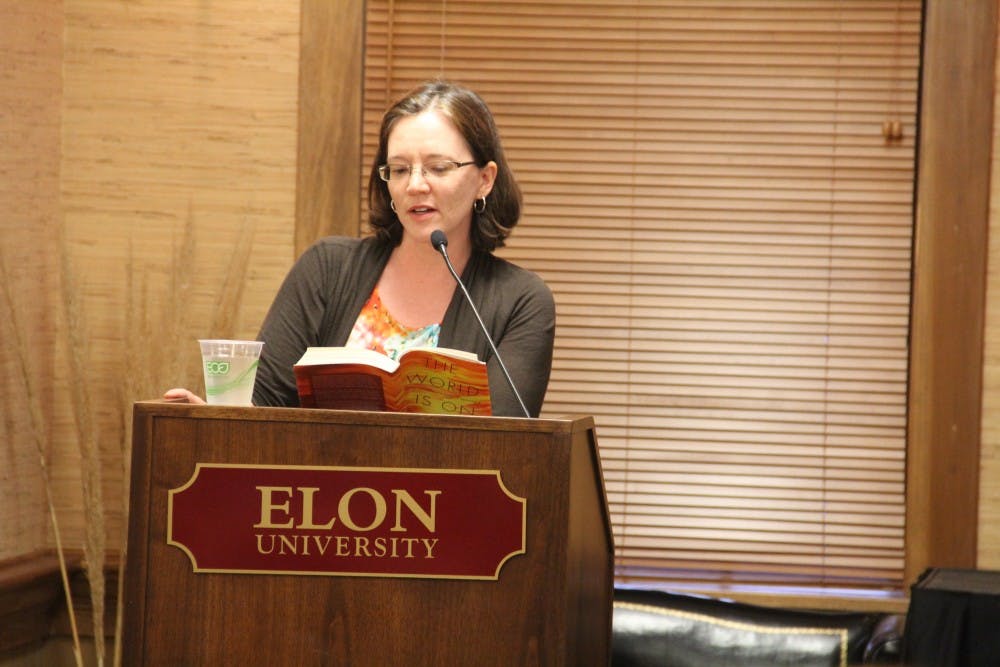Joni Tevis, a nonfiction writer who visited Elon University Wednesday in Johnston Hall, recognized Elon University's nonfiction contest winners and read samples of her original work.
A South Carolina native, Tevis teaches at Furman University, but prides herself on her prior jobs as a factory worker, cemetery plot seller and park ranger. Tevis has published two nonfiction novels: the first, titled "The Wet Collection," in 2012 and the second, "The World is on Fire: Scrap, Treasure, and Songs of Apocalypse," last year.
Tevis said she was thrilled to name the winners of Elon’s nonfiction writing contest as part of CELEBRATE! week. Senior Allison Ginsburg’s piece “The Jewish Mother,” freshman Lauryl Fischer’s piece “Soliloquy of a Hairy Girl” and senior Miranda Romano’s piece “The Trouble with Having a Body” all received Honorable Mentions. Senior Hanna Elmgren won first place with her piece “Collision.” Tevis discussed how she evaluated others' writing but highlighted Elmgren’s for its moving content.
“[Elmgren’s piece] looks outward as it looks inward,” Tevis said.
The nonfiction writer moved forward in her talk by reading passage from her novel "The World is on Fire: Scrap, Treasure, and Songs of Apocalypse." In this book, Tevis was inspired by the church sermons she heard as a child and their terrifying effect of giving her ideas about doom and mass destruction.
Tevis read from her chapter about atomic bombs during World War II and iconic singer Buddy Holly. She admitted that nonfiction is sometimes a bit confusing, and the topics she covered in this passage initially appeared completely disconnected.
“We’re at the end of the semester, so don’t necessarily worry about what it means,” Tevis said.
After lengthy descriptions of atomic bombs and their potential dangers during World War II, Tevis switched subjects to the “innocent” rock-and-roll star Buddy Holly. In her writing, she wrote about how she fell for his giant geeky glasses and sweet lyrics initially but grew to appreciate him more over time as a great “rock-and-roll specialist” of his time.
Tevis’ passage continued with a return back to the subject of atomic bombs and its wide-reaching effects. In a vivid description, she described the destroyed look of the ruined cities of Hiroshima and Nagasaki after they were hit. Tevis then compared the dire consequences of the bombs striking these two cities to Los Angeles. In Los Angeles, shop owners sold the shards of glass from their shattered windows as souvenirs from the atomic bomb that barely touched California.
Tevis concluded her passage and thanked the small room of students and faculty for their attendance. As she left the podium, several people approached her to briefly chat and buy a copy of her work.


